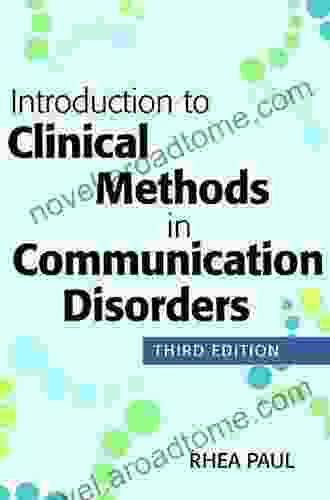Epidemiology: Unraveling the Enigma of Disease Patterns


Epidemiology, the scientific study of disease patterns and their causes, plays a pivotal role in safeguarding public health and improving human well-being. This comprehensive guide will delve into the intriguing world of epidemiology, exploring its history, methods, and wide-ranging applications.
A Historical Perspective: The Roots of Epidemiology
The origins of epidemiology can be traced back to ancient civilizations, where scholars observed and documented disease outbreaks and their impact on populations. However, it was not until the 19th century that epidemiology emerged as a distinct scientific discipline.
4.4 out of 5
| Language | : | English |
| File size | : | 1133 KB |
| Text-to-Speech | : | Enabled |
| Screen Reader | : | Supported |
| Enhanced typesetting | : | Enabled |
| Print length | : | 161 pages |
| Lending | : | Enabled |
One of the pioneers of epidemiology was John Snow, a British physician who investigated a cholera outbreak in London in 1854. Snow's meticulous research, which involved mapping the locations of cholera cases and identifying the contaminated water source, provided groundbreaking insights into the transmission of infectious diseases.
Methods of Epidemiology: Uncovering Disease Patterns
Epidemiologists employ a range of methods to study disease patterns and identify their causes. These methods include:
- Observational studies: These studies observe disease patterns in populations without directly intervening. Observational studies can be either prospective or retrospective, depending on whether they follow individuals over time or look back at data from the past.
- Experimental studies: In experimental studies, researchers actively intervene to change a potential risk factor and observe the impact on disease incidence. Experimental studies provide the strongest evidence for causality, but they are often not feasible or ethical to conduct.
- Data analysis: Epidemiologists use statistical methods to analyze data and identify trends, associations, and risk factors. Data analysis is crucial for understanding the distribution and determinants of diseases.
Applications of Epidemiology: Addressing Public Health Challenges
Epidemiology has a wide range of applications in public health, including:
- Disease surveillance: Epidemiologists monitor disease patterns to detect outbreaks and identify emerging threats.
- Outbreak investigation: When an outbreak occurs, epidemiologists investigate to identify the source of infection and implement control measures.
- Risk factor identification: Epidemiology helps identify risk factors for diseases, such as smoking, poor diet, and exposure to environmental hazards.
- Health promotion and disease prevention: Epidemiological research informs the development of public health programs to promote healthy behaviors and prevent diseases.
- Policy development: Epidemiology provides evidence to support public health policies and regulations.
Challenges and Frontiers: Pushing the Boundaries of Epidemiology
Epidemiology faces several challenges, including:
- Data availability and quality: Collecting accurate and timely data is essential for epidemiological research, but it can be difficult to obtain in some settings.
- Bias and confounding: Epidemiological studies can be biased by factors that influence the results, such as selection bias or confounding variables.
- Ethical considerations: Epidemiological research must be conducted in an ethical manner, respecting the privacy and rights of participants.
Despite these challenges, epidemiology continues to advance, with exciting developments in areas such as molecular epidemiology, genetic epidemiology, and computational epidemiology. These advances are deepening our understanding of disease patterns and enabling the development of more effective public health interventions.
Epidemiology is a dynamic and essential field that plays a critical role in safeguarding public health. By studying disease patterns and their causes, epidemiologists provide vital insights that enable us to prevent and control diseases, promote health, and improve the lives of people around the world. As we continue to face new and emerging health challenges, epidemiology will remain indispensable in guiding our response and protecting the health of our communities.
4.4 out of 5
| Language | : | English |
| File size | : | 1133 KB |
| Text-to-Speech | : | Enabled |
| Screen Reader | : | Supported |
| Enhanced typesetting | : | Enabled |
| Print length | : | 161 pages |
| Lending | : | Enabled |
Do you want to contribute by writing guest posts on this blog?
Please contact us and send us a resume of previous articles that you have written.
 Book
Book Novel
Novel Page
Page Chapter
Chapter Text
Text Story
Story Genre
Genre Reader
Reader Library
Library Paperback
Paperback E-book
E-book Magazine
Magazine Newspaper
Newspaper Paragraph
Paragraph Sentence
Sentence Bookmark
Bookmark Shelf
Shelf Glossary
Glossary Bibliography
Bibliography Foreword
Foreword Preface
Preface Synopsis
Synopsis Annotation
Annotation Footnote
Footnote Manuscript
Manuscript Scroll
Scroll Codex
Codex Tome
Tome Bestseller
Bestseller Classics
Classics Library card
Library card Narrative
Narrative Biography
Biography Autobiography
Autobiography Memoir
Memoir Reference
Reference Encyclopedia
Encyclopedia Yasser Kassem
Yasser Kassem William Bryant Logan
William Bryant Logan Rob Rose
Rob Rose Softcover Reprint Of The Original 1st Ed 1986...
Softcover Reprint Of The Original 1st Ed 1986... Phillips Jones
Phillips Jones Rolf Holmqvist
Rolf Holmqvist Rabbi Hyim Shafner
Rabbi Hyim Shafner Simon Jacobson
Simon Jacobson Victoria Summit
Victoria Summit Renate Bruckmann
Renate Bruckmann Thomas M Sipos
Thomas M Sipos Sally Ryan Costik
Sally Ryan Costik Sharon Paice Macleod
Sharon Paice Macleod Veronica Goodman
Veronica Goodman Cyndi Lauper
Cyndi Lauper Saroj Kapoor Bagai
Saroj Kapoor Bagai Daemon Barzai
Daemon Barzai The Entrepreneur S Source
The Entrepreneur S Source Kent Beck
Kent Beck Revised Edition Kindle Edition
Revised Edition Kindle Edition
Light bulbAdvertise smarter! Our strategic ad space ensures maximum exposure. Reserve your spot today!

 Connor MitchellEmpower Your Sermons: The Ultimate Solution for Busy Pastors – Sermon Box Set
Connor MitchellEmpower Your Sermons: The Ultimate Solution for Busy Pastors – Sermon Box Set Paulo CoelhoFollow ·19.7k
Paulo CoelhoFollow ·19.7k Zachary CoxFollow ·18.8k
Zachary CoxFollow ·18.8k Cody RussellFollow ·4k
Cody RussellFollow ·4k Joseph ConradFollow ·5.7k
Joseph ConradFollow ·5.7k Rubén DaríoFollow ·7.8k
Rubén DaríoFollow ·7.8k Dakota PowellFollow ·4.3k
Dakota PowellFollow ·4.3k Brennan BlairFollow ·18.9k
Brennan BlairFollow ·18.9k Jayden CoxFollow ·18k
Jayden CoxFollow ·18k

 Eli Brooks
Eli BrooksOver 700 Organic Remedies Shortcuts And Tips For The...
: Embracing the Power of...

 Carter Hayes
Carter HayesUnveiling the Unofficial Political Religion of India: A...
Embark on an...

 Colin Richardson
Colin RichardsonOf Colors and Critters: A Journey Through the Animal...
In the tapestry of...

 Harry Hayes
Harry HayesUnveiling the Hidden Truths: Mao, Stalin, and the Korean...
Step into the enigmatic realm of the 20th...

 George Bernard Shaw
George Bernard ShawBand 1b Pink: A Journey Through the World of Reading
Band 1b Pink is a...
4.4 out of 5
| Language | : | English |
| File size | : | 1133 KB |
| Text-to-Speech | : | Enabled |
| Screen Reader | : | Supported |
| Enhanced typesetting | : | Enabled |
| Print length | : | 161 pages |
| Lending | : | Enabled |












